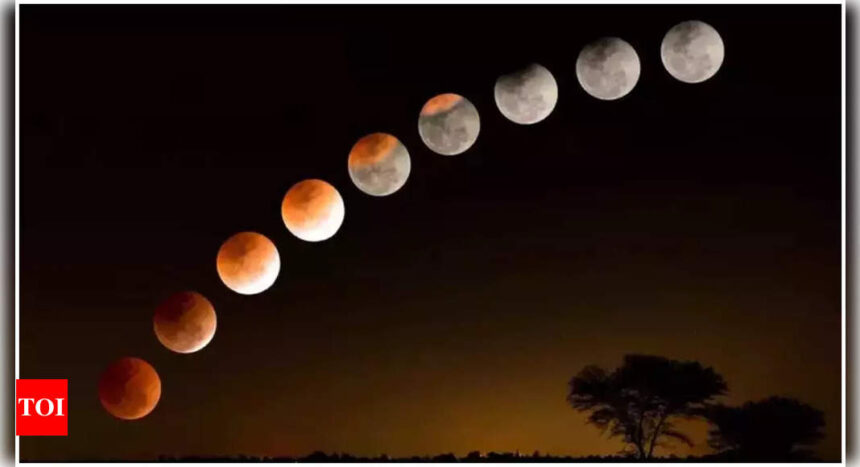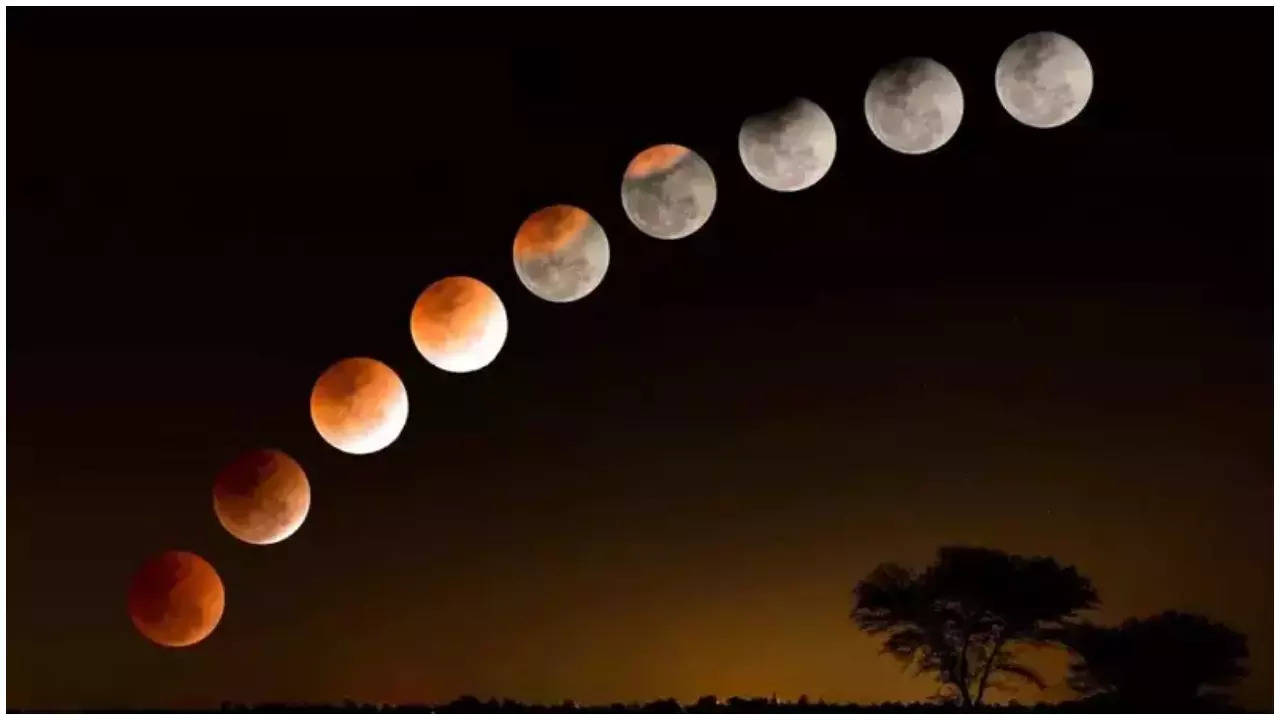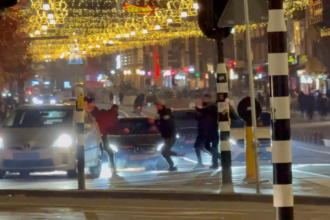Skywatchers across the United States, Europe, most of Africa, western Asia, and parts of Antarctica on Tuesday evening will have the opportunity to witness a unique celestial event featuring a partial lunar eclipse and a super full Moon.
This eclipse will take place during a “supermoon,” during which the Moon will appear brighter and will also be larger in size as it reaches its closest point to Earth, known as perigee
In October, the Moon will be situated more than 222,000 miles from our planet at its nearest approach, Fox Weather reported.
Lunal eclipse will appear because Earth will pass between the Sun and the Moon, a temporary shadow will be cast on our natural satellite, but the event is not expected to be as breathtaking as the total solar eclipse millions witnessed earlier in the year.
This particular full Moon is known as the Harvest Moon due to its proximity to the autumnal equinox.
The Farmer’s Almanac also refers to it as the Corn Moon, a name derived from Native American traditions that utilized the extra light to harvest crops throughout the night. Late September and October are typically busy months for farmers as they work to gather their crops before the onset of cold weather.
As a result of the increased gravitational pull from the Moon during this event, coastal communities may experience higher-than-normal water levels, a phenomenon known as King Tides.
When will lunal eclipse occour?
According to NASA, the lunar eclipse will commence around 8:41 pm EDT, with the shadow beginning to appear on the Moon’s surface. The event will reach its peak just over two hours later at 10:44 pm EDT, with only eight percent of the Moon fully shadowed. The entire celestial occurrence is expected to conclude before 1 am on September 18.
People in London can expect the eclipse’s peak at around 3:45 a.m. BST.
How to watch lunar eclipse?
Lunar eclipses are among the easiest skywatching events to observe. You can lookup in the sky and watch the eclipse.
No special equipment like a telescope is necessary. However, binoculars or a small telescope can enhance the experience by revealing details on the moon’s surface —moonwatching is just as captivating during an eclipse as at any other time.
If the eclipse takes place in winter, be sure to dress warmly if you plan to stay outside for the entire event, as it can take a couple of hours to unfold. Consider bringing warm drinks, blankets, or chairs for added comfort.o watch?
This eclipse will take place during a “supermoon,” during which the Moon will appear brighter and will also be larger in size as it reaches its closest point to Earth, known as perigee
In October, the Moon will be situated more than 222,000 miles from our planet at its nearest approach, Fox Weather reported.
Lunal eclipse will appear because Earth will pass between the Sun and the Moon, a temporary shadow will be cast on our natural satellite, but the event is not expected to be as breathtaking as the total solar eclipse millions witnessed earlier in the year.
This particular full Moon is known as the Harvest Moon due to its proximity to the autumnal equinox.
The Farmer’s Almanac also refers to it as the Corn Moon, a name derived from Native American traditions that utilized the extra light to harvest crops throughout the night. Late September and October are typically busy months for farmers as they work to gather their crops before the onset of cold weather.
As a result of the increased gravitational pull from the Moon during this event, coastal communities may experience higher-than-normal water levels, a phenomenon known as King Tides.
When will lunal eclipse occour?
According to NASA, the lunar eclipse will commence around 8:41 pm EDT, with the shadow beginning to appear on the Moon’s surface. The event will reach its peak just over two hours later at 10:44 pm EDT, with only eight percent of the Moon fully shadowed. The entire celestial occurrence is expected to conclude before 1 am on September 18.
People in London can expect the eclipse’s peak at around 3:45 a.m. BST.
How to watch lunar eclipse?
Lunar eclipses are among the easiest skywatching events to observe. You can lookup in the sky and watch the eclipse.
No special equipment like a telescope is necessary. However, binoculars or a small telescope can enhance the experience by revealing details on the moon’s surface —moonwatching is just as captivating during an eclipse as at any other time.
If the eclipse takes place in winter, be sure to dress warmly if you plan to stay outside for the entire event, as it can take a couple of hours to unfold. Consider bringing warm drinks, blankets, or chairs for added comfort.o watch?
Source : Times of India









